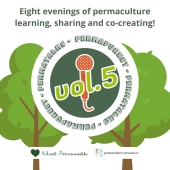Humans are not the only ones who have "neighborhood watch programs"!
Crows are fledging and the young will spend at least a couple of weeks on the ground, learning how to fly as their tail feathers grow out; same with gull babies. The attack on the hawk was to drive this threat from their territory, so their families are safe.
As mentioned, there is an element of weeding out the the less able: unwary, less cautious, etc., who frankly, would have passed their inattention on to their own young - not a good trait for survival in any species. So I consider this a bit of "pruning" the less hardy...and that it likely "improves" the genetics, long term - adapt or die. Perhaps a bit harsh, for some, but Mother Nature IS a hard taskmistress!
On the lighter side, it is so cool to watch interactions like this play out; to see animals/birds cross species lines, joining together for the greater good; protecting their communities; "running off" the "bad element in the area. Humans like to think they are superior, that we are the only ones with a concept of family, community, caring for others, or joining together for the greater good.
On the flip side, to see the risks a bird, desperate for food, will risk crossing territory/boundary lines, to secure food for themselves and their offspring - equally amazing and "human-like".
To see that birds/animals appear to "grieve" for lost loved ones...all these actions, that appear to come from an emotional place, is often surprising for us "two-legged" creatures. And yet, is it really so remarkable?
This is one of the reasons
permaculture and co-habitation is so critical - learning that ALL creatures have families and feelings; territories and boundaries; the ability to work together on an inter species level.
Rather than automatically removing or killing wildlife when conflict occurs, we need to look to how we establish and define our territories and boundaries. Create predator proof enclosures, fencing, and safeguards. Electric fencing as a deterrent is an expensive investment, but it WILL pay for itself, over time; as will ALL efforts to safeguard our gardens, crops and live stock.
Please, take this encounter to consider if there is more you could do, or a better way to limit your own human/wildlife conflict. Consider being proactive, rather than reactive. Consider that we ALL share this planet, and all have rights and entitlements...ask yourself "How can I do better"?
Some food for thought.

 6
6






 2
2




 3
3




 8
8




 3
3






